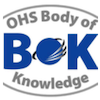Chapter 12.1: Systems
Abstract
‘System’ is a commonly used term in Occupational Health and Safety (OHS) as in, for example, systems of work, OHS management systems and system safety. Systems thinking and system methodologies have a rich history outside the OHS sphere. Examination of the use of ‘system’ terminology within OHS indicates that it frequently refers to a ‘systematic’ approach, or a series of logically ordered steps, rather than what has developed as ‘systems thinking.’ Although a systematic approach is useful, OHS management could benefit from the application of systems thinking and from a viable system approach, which treats organisations as whole entities with interconnected elements, and recognises that a system cannot be entirely understood by examining the parts is isolation. This chapter reviews the development of systems thinking and its historical and present day application to OHS. In presenting the implications for OHS practice it concludes that the optimal OHS outcome can be achieved through an understanding of a system and the application of different systems methodologies at different stages in the OHS risk management process.
Keywords: system, management systems, safe systems of work, system safety, systems thinking, high reliability organisations, system variability, system adaptability
First year of publication: 2012
Current Version: 2012
Chapter 12.1: Systems
Table of contents
1 Introduction
2 Historical perspective
3 Understanding ‘systems’
3.1 System and systematic
3.2 Systems of work
3.3 OHS management systems
3.4 Systems thinking in an OHSMS context
3.5 System safety
3.6 System variability
4 Implications for OHS practice
5 Summary
Key authors and thinkers
References
Dr David Borys PhD, MAppSc(OHS), GDipOHM, GCEd, AssocDipAppSc(OHS), FSIA
Senior Lecturer, VIOSH Australia, University of Ballarat
Dr Steve Cowley PhD, BSc(Hons)(OHS), MSc(OccHyg), GCEd, FSIA, RSP
Steve Cowley Health & Safety Consulting
Associate Professor Susanne Tepe PhD, MBA, MOS, FSIA OHS,
School of Applied Sciences, RMIT University
Associate Professor Andrew Morrell BEng, GDipMgt
Minerals Industry Risk Management, Minerals Industry Safety and Health Centre, University of Queensland
Associate Professor Wendy Macdonald BSc(Hons)Psych, G.DipPsych, PhD, MHFESA, MICOH, FSIA, FIEA
Associate Professor, Centre for Ergonomics and Human Factors, Faculty of Health Sciences, La Trobe University
Learning Outcomes: Systems
The OHS Body of Knowledge takes a conceptual approach which enables it to be applied in different contexts and frameworks.
To optimise its value for education and professional development learning outcomes have been developed for each technical chapter in the Body of Knowledge.
The learning outcomes as described give an indication of what should be the capabilities of an OHS professional; it is up to those developing OHS education programs, OHS professionals planning their CPD or recruiters or employers selecting or developing people for the OHS function to consider the required breadth vs. depth .
Please read the section on using the learning outcomes before delving into the leaning outcomes of the individual chapters.
The numbers against each learning outcome refer to the chapter number of the BOK download page. No learning outcomes have been developed for the chapters considered introductory or underpinning knowledge (that is chapters 1, 2, 3, 4, 5, 6, 7, 1, .13, 14, 15.)
Webinars
AIHS Webinar Systems Thinking
This study presents the first steps in the development and evaluation of an investigation toolkit, the Patient Handling Injuries Review of Systems (PHIRES). The PHIRES Toolkit was developed to help OHS practitioners adopt a systems thinking approach to investigating patient handling injuries, underpinned by Rasmussen’s (1997) risk management framework. This paper presents the key findings from the initial development and usability evaluation of the PHIRES Toolkit conducted with ten health services in Victoria. The findings of this study suggest that the Toolkit is effective in helping practitioners apply system-thinking to understand the complex system of factors involved in patient handling injuries.
Date: 2021
Presenter: Michelle Grayland
Source: https://youtu.be/FHyMrXFlr3o
Lectures
Eric Wigglesworth Memorial Lecture: Systems and systems thinking in OHS
Systems thinking is a currently popular philosophy within safety science that is applied to understand and enhance occupational health and safety. This memorial lecture reflects on over twenty years of applied safety research and discusses ten critical lessons learned about OHS management. It includes case study examples covering accident and injury causation, risk and risk assessment, incident reporting and learning, accident analysis, work design, and the development of safety interventions. The practical implications of each lesson learned for OHS are discussed. The lecture closes by looking at emerging challenges for OHS and the need for widespread application of systems thinking.
Date: 2021
Presenter: Paul Salmon
Source: https://youtu.be/LL9ishQXPUg

